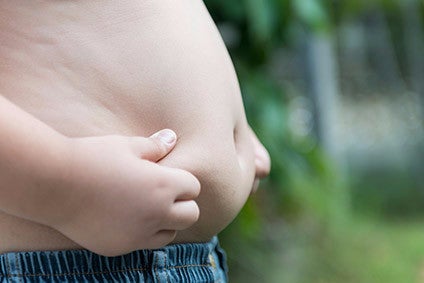
Scotland’s devolved government is proposing a package of measures to tackle obesity in the country.
Health is a devolved policy issue in the UK and today (26 October), the Scottish government issued proposals – now out for consultation – that include introducing measures to restrict the promotion and advertising of food and drink high in fat, sugar and salt.

Discover B2B Marketing That Performs
Combine business intelligence and editorial excellence to reach engaged professionals across 36 leading media platforms.
Scotland has proposed banning the broadcast advertising of such foods before the 9pm watershed. However, regulation governing broadcast
is in the hands of the UK government and Scotland said it would “strongly press” London to bring in a ban. If the UK government did not act, Scotland said it would “request these powers are devolved to the Scottish Parliament”.
Supermarket price promotions on so-called junk food would also be restricted. Measures could include a ban on multi-buy offers on products such as crisps and sweets, or on temporarily discounts aimed at increasing sales.
But industry body the Food and Drink Federation (FDF) said further controls on advertising and promotions in what it sees as an already strictly regulated marketplace would be a “huge misfire”.
The Scottish government said it would back its plans with GBP40m (US$52.6m) of new investment to deliver nearly 100,000 supported weight management ‘interventions’ for people with, or at risk of, type 2 diabetes.

US Tariffs are shifting - will you react or anticipate?
Don’t let policy changes catch you off guard. Stay proactive with real-time data and expert analysis.
By GlobalDataLaunching the consultation, Scotland’s Public Health Minister, Aileen Campbell, said: “Obesity significantly increases the risk of developing type 2 diabetes, cancer cardiovascular disease and depression. Simply put, it’s harming the people of Scotland. It also puts pressure on the NHS, other public services and our economy.
“That is why we need commitment and action from everyone across all sectors and at all levels including government, citizens, the public sector and businesses right across the country.
“We are putting forward a package of bold measures designed to help people make healthier choices, empower personal change and show real leadership. Now we need people who live, work and consume food and drink in Scotland to tell us what they think.”
But, while backing attempts to tackle obesity, the FDF criticised plans to restrict promoting certain foods.
David Thomson, CEO of FDF Scotland, said: “Restricting promotions will hit the poorest shoppers hardest – at a time when all customers are seeing increases to the cost of their weekly shopping basket.
“The regulation of promotions within retail premises is a hugely complicated area and could create unfair disadvantage to different types of products.
“We would urge Scottish government to consult widely and to gather evidence on the financial, practical and legal implications for businesses and consumers before seeking to change the law.”
“UK food and drink companies have a high compliance rate with advertising rules but further controls on advertising in what is already a strictly regulated marketplace would be a huge misfire.”
Thomson said the food industry is already playing its part with reformulation, limiting portion sizes and voluntary front-of-pack labelling.
The consultation will period will end on 31 January.
In August 2016, the UK government issued its bid to tackle childhood obesity in England, including a levy on soft drinks and a voluntary reduction for sugar reduction in foods.
However, as widely-predicted, the strategy ignored calls for curbs on junk food advertising and anti-obesity campaigners said the package of measures amounted to a “watered down” strategy that failed to signpost moves towards effective action.





